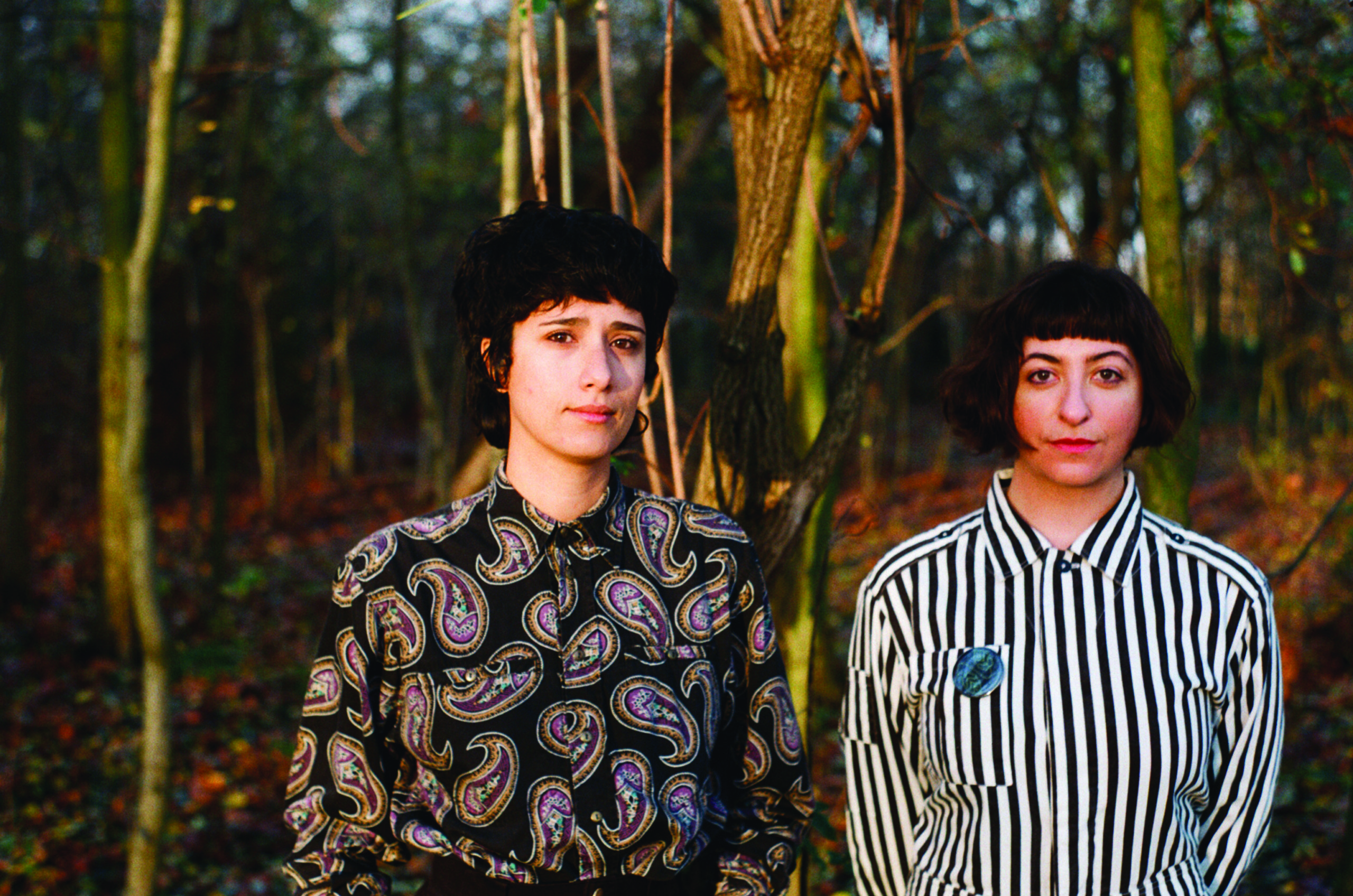It’s hard to imagine Maltese literature leaving a mark on the global stage. We might assume that there simply isn’t enough interest. But in a world that’s so increasingly globalised, is it fair to assume that a language that represents such a melting pot of identities has nothing to offer to the wider cultural market? The UK-based micro publisher Praspar Press, spearheaded by Kat Storace and Jen Calleja, is setting out to disprove that assumption.
In September 2013 Kat Storace boarded a flight to the UK and embarked on an adventure with a suitcase full of hopes and dreams. As an avid reader and book lover, she was determined to learn all she could about the publishing industry and bring a little slice of it back to Malta. After a few detours and a couple of chance encounters, University of Malta (UM) alumna Kat Storace and Jen Calleja merged their determination and views to found Praspar Press in 2020.

Photo by Robin Silas
‘I met Jen when she was chairing an English PEN event which centred around Literature in Translation, and we started talking and bonding over our Maltese surnames,’ she laughed. ‘We also discussed our views on bilingualism and translation, and we realised we hold many common views,’ she said.
‘We kept in touch, and it quickly became clear that we both wanted to do something about the lack of Maltese works (in translation or otherwise) available on the UK market,’ she said.
The pair decided they wanted to do what they could to bridge the gap between Maltese writers and the UK publishing industry. They took their inspiration from other small presses championing similar works including Fitzcarraldo Press, Tilted Axis, Prototype, Lolli Editions, and Les Fugitives. These small presses highlight diverse and intersectional voices that are often ignored by bigger companies, mainly because niche audiences do not usually generate high returns. Storace and Calleja noticed that recently translated works had found a receptive market in the UK. The press then sought support from the Malta National Book Council, which provided them with funding for their first publication: an anthology of Maltese writing which will include poetry, fiction, and nonfiction to be published in October 2021. Their second project, also planned for 2021 and also part-funded by the Malta National Book Council, will be an English translation of Loranne Vella’s short story collection, mill-bieb ’il ġewwa, published in the UK as What will it take for me to leave.
Publishing from island to island
Storace began to develop an interest in publishing back in her days as an English Undergraduate student at the University of Malta. During this time, she was instrumental in setting up DESA – The Department of English Students Association.
‘DESA is still one of my proudest achievements and my first baby,’ she laughed, looking back on the research into student organisation mandates and applications. ‘I always enjoyed doing something new. I like to challenge myself and create something, especially if it doesn’t already exist, and set it free in the world,’ she added, explaining that the student organisation had continued to thrive and grow since she left university. ‘I eventually also started editing for Insite, a student-run magazine, which helped me to get a job in magazine publishing.’
After completing an MA with the UM’s English Department in 2009, she started working for Network Publications’ Circle magazine, ultimately taking on the magazine’s editorship. This role provided her with contacts in the local industry, and further stoked her interest in editorial work, but she decided to take her interest in publishing further and read for an MA in Publishing at Oxford Brookes University after hearing a talk about the course at UM.
‘I had always hoped to use my knowledge of the UK publishing industry to create something locally or to address the lack of Maltese publishing in the global market,’ she said, looking back on the various statements she wrote as an applicant to the course.
Ultimately the MA led Storace to an internship at the esteemed publisher Faber & Faber, and that internship led to a four and half-year employment at the company spanning various departments from Rights, to Marketing, and Editorial. The experience equipped her with a well-rounded knowledge of some of the key processes for UK book publishing.
‘During this time, I learned a lot about the various departments in publishing, and I also realised how complex the industry actually is. No matter how much experience I already had, it was like starting from scratch,’ she explained, adding that the learning curve delayed her plans to contribute to the local publishing scene.
‘I ultimately took a step away from the industry to reignite my passion for creating something new for Maltese creators,’ she said of her decision to leave Faber and take up a position at Gunter Piekarski, an independent Graphic Design Studio.
Although she is clearly no stranger to breaking new ground, Storace explained that working at the four-person operation has helped her to build the confidence to rely on her own resources and pushed her to start something of her own during last year’s lockdown.
With an infectious enthusiasm, Storace went on to explain that the project has worked so far because of a clear sense of partnership and respect that has allowed Jen and Kat to blend their experience seamlessly.
‘We both bring something different to the table. I have always read and loved Maltese books as well as having contacts in the Maltese book scene. Jen, on the other hand, doesn’t read Maltese herself, but her formidable work as an author, editor, and literary translator from German into English has been widely praised, and she was shortlisted for the Man Booker International Prize 2019, so her opinion in reading the works in translation will be invaluable to give us a more objective view of the work.’
What’s in a name?
One of the most striking things about the company is perhaps its name; a playful word that is largely untranslatable into English, yet instantly evocative to Maltese speakers. In fact, the word is a nod to one of Kat’s childhood favourites, Charles Casha’s Il-Praspar ta Fra Mudest.
‘We went through so many potential names for the press, ranging from sea-related terms to the classic pen and quill metaphors,’ she explained with a giggle.
Storace goes on to explain how she hopes this kind of collaboration will be a winning formula to identify and launch Maltese writers into a more global market. Their aim as a publisher isn’t to dominate UK markets, but rather to serve as a springboard for local talent. In fact, that was the logic behind choosing an anthology as a first publication. Their call to action led to a whopping 200 submissions being sent in, from poetry to non fiction, as well as fiction pieces including genre fiction and extracts from larger works.
‘It was hard to whittle down the selection, but we finally settled on sixteen pieces. The sheer volume of impressive pieces submitted makes me truly hopeful that we will be able to publish another anthology next year, but this is all readership and funding dependent,’ she said.
Sharing Maltese Literature
In its first year, Praspar is hoping to raise its profile, both in the local scene by participating in literary events such as the Malta Book Festival this November, as well as in the UK publishing scene, through hand-selling their books to indie bookshops and online, as well as marketing the books with agents and other publishers.
‘We hope to have a strong enough following to prepare a second anthology, and we would like to work with even more local talent such as designers for any future work,’ she said.
It’s hard not to root for such a hopeful enterprise. Being unable to share your most formative reading experiences simply because of a language barrier can be quite frustrating! We went on to discuss some of the works that ignited a desire to be shared amongst international friends. Storace also reflected on influential works like the poetry of Maria Grech Ganado, Loranne Vella, Marie Gion, and Alex Vella Gera among others.
‘If there was one work that truly made me want to share Maltese literature, it has to be Alex Vella Gera’s seminal Is-Sriep Reġgħu Saru Velenużi. I devoured that book, and at the time that it was published, I remember wishing I could share it with my UK based publishing friends.’ Thankfully Vella Gera’s work has resonated so strongly with local audiences that it has inspired a film version and a translation, but it is precisely the reach of works that encapsulate Maltese history, identity, and language issues that Praspar Press aims to enhance.
As we wrapped up our chat, Kat stressed that Praspar really hopes to continue growing and to involve as much Maltese talent as possible. So much of contemporary Maltese writing reflects our island nation’s unique identity, history, and influences. If Praspar grows, Maltese literature might start shaping global cultures, inspiring others outside of this tiny island in the Mediterranean.





Comments are closed for this article!